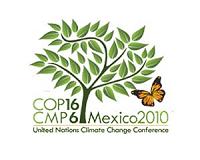 |
Brussels (UPI) Dec 8, 2010 Canada, the United States and China rank near the bottom of a global climate change performance index released this week by Germanwatch and Climate Action Network Europe. The world's two biggest greenhouse gas emitters dropped a few ranks compared to last year, with China now ranked 56th and the United States 54th out of 57 countries surveyed. Canada ranked last in the index, compiled with the help of more than 190 experts who analyzed national policies in the countries. Poland was placed at No. 55. Australia, Kazakhstan and Saudi Arabia came in after Canada. This year's index identifies Brazil as the top climate protection performer for its successful efforts to reduce emissions and contain deforestation. Brazil ranks fourth, with the first three spots again left vacant as no countries did enough to earn the honor, the groups behind the index said. Sweden, Norway and Germany came after Brazil on the list. After last year's climate negotiations in Copenhagen failed to produce an international binding climate protection agreement, it's good to see that national climate efforts have improved in a number of countries, said Germanwatch's Jan Burck, the author of the sixth annual Climate Change Performance Index. "For the first time, national policies have been graded better than international policies." Burk said in a statement. "We will see whether Cancun will be able to translate these national actions into a positive international dynamic." Representatives from nearly 190 nations are meeting in Cancun, Mexico, to hammer out the details of a successor to the Kyoto Protocol, which runs out in 2012. There has been little progress in the negotiations since Copenhagen. China, for example, has done little to push the U.N. negotiations but at the same time markedly improved its national climate policies, "including legislation on renewable energy, which has already made it the world leader in wind energy investments," said Matthias Duwe, director at CAN Europe. "This represents a trend toward strong national climate policy that we have seen throughout the CCPI this year." China's high overall emissions -- they're weighted heavier than national policies -- nevertheless resulted in a low ranking. For the United States, the Senate's blockage of climate legislation and a poor performance when it comes to per-capita emissions and climate policy was enough to keep the country near the bottom of the rankings. "The Obama administration will now have to utilize existing clean air laws to regulate emissions and reverse the United States' downward trend in this index," Duwe said.
Share This Article With Planet Earth
Related Links Climate Science News - Modeling, Mitigation Adaptation
 WikiLeaks adds twist to climate hopes
WikiLeaks adds twist to climate hopesCancun, Mexico (AFP) Dec 6, 2010 Climate negotiators Monday hailed a brighter mood in often torturous global talks, but disclosures by WikiLeaks of hard-nosed behind-the-scenes diplomacy threatened to reopen fissures. A two-week session in the Mexican resort of Cancun is looking to make incremental progress toward a new treaty to fight climate change, which UN scientists warn threatens severe effects for the planet if unche ... read more |
|
| The content herein, unless otherwise known to be public domain, are Copyright 1995-2010 - SpaceDaily. AFP and UPI Wire Stories are copyright Agence France-Presse and United Press International. ESA Portal Reports are copyright European Space Agency. All NASA sourced material is public domain. Additional copyrights may apply in whole or part to other bona fide parties. Advertising does not imply endorsement,agreement or approval of any opinions, statements or information provided by SpaceDaily on any Web page published or hosted by SpaceDaily. Privacy Statement |